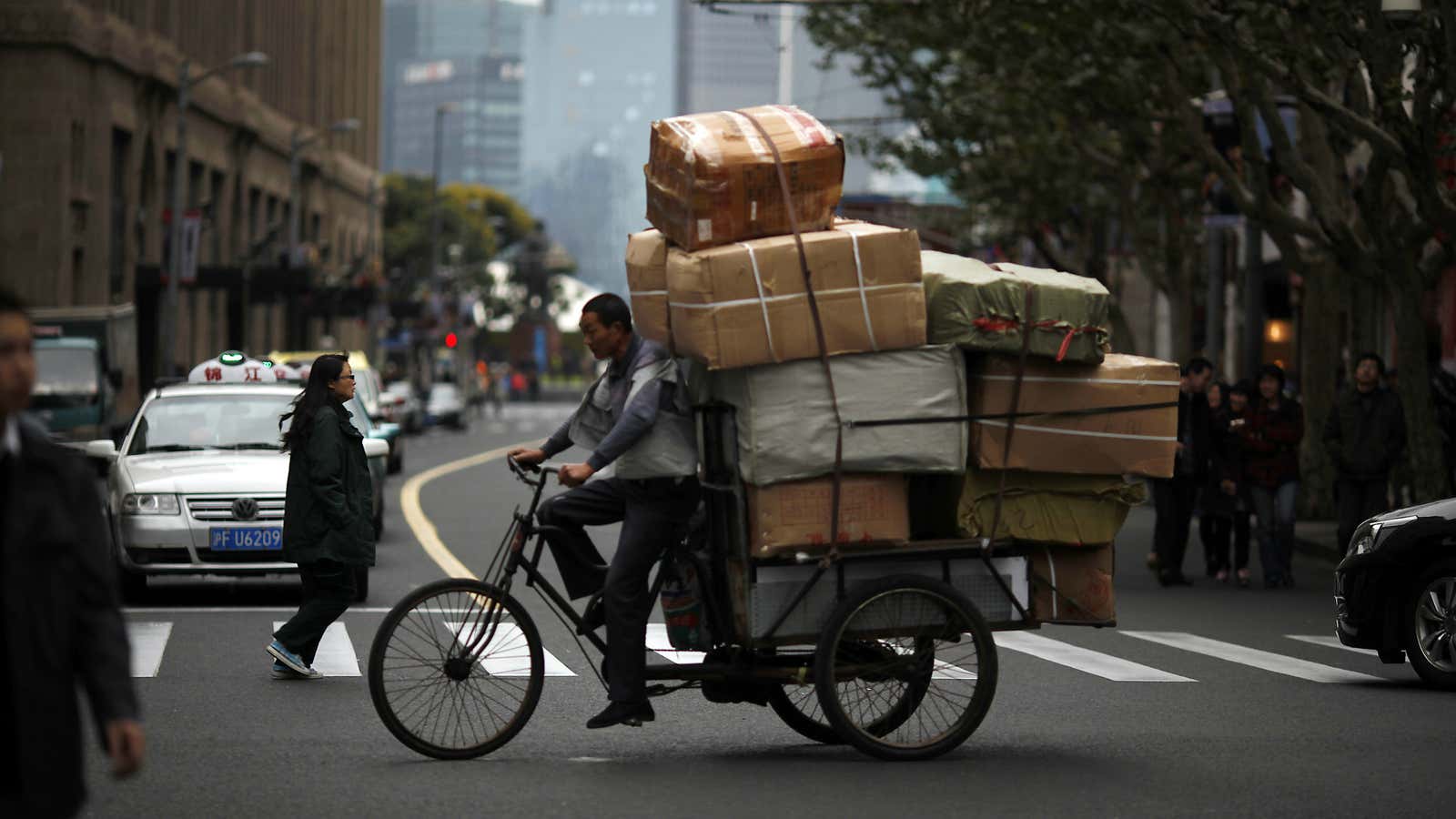Alibaba, China’s e-commerce giant, is hungry to expand its reach into less developed parts of northern China, and it’s prepared to do it even though it’s going to have a tough time delivering its goods to customers there.
Part of the company’s 2016 strategy involves growing its operations in China’s biggest cities. That includes paying more attention to online grocery and electronic sales in Beijing, a gateway for serving the some 400 million people in the less developed northern territories, the company said.
It’s being packaged as an “Alibaba everywhere” approach, and hinges on making it easier for rural populations to buy from Alibaba. The company’s slowing growth (paywall) in larger Chinese cities has spurred it to make inroads in untapped regions, reports the Wall Street Journal.
The problem? Getting “everywhere” is tough. China’s postal system is notoriously unreliable, there are too few distribution centers, and rural roads are in bad shape.
Total online sales in China are expected to reach $356 billion in 2016, according to the Journal. In large cities, that means millions of packages being delivered by couriers zipping through streets on scooters. In far-flung communities, though, getting deliveries is a more cumbersome venture.
Customer complaints about lost mail have led China to strip (paywall) more than 100 delivery companies of their permits—a challenge for a country that’s been ranked by the World Bank as 26th in the world for logistics infrastructure, according to the Journal.
One reason for this is that China has fewer dominant national retail chains that serve consumers than in the US, where big- and medium-sized box stores are sprinkled generously across the 50 states. The US also benefits from the roads built in the late 1800s to accommodate a robust postal system.
And because China’s retail store networks are less developed, more than 11% of total retail sales take place online, versus 8% in the US, according to Moody’s. That’s expected to increase to just under 16% by the end of this year. That means Alibaba will have its work cut out finding a way to get reliably get packages from online to off-road.




